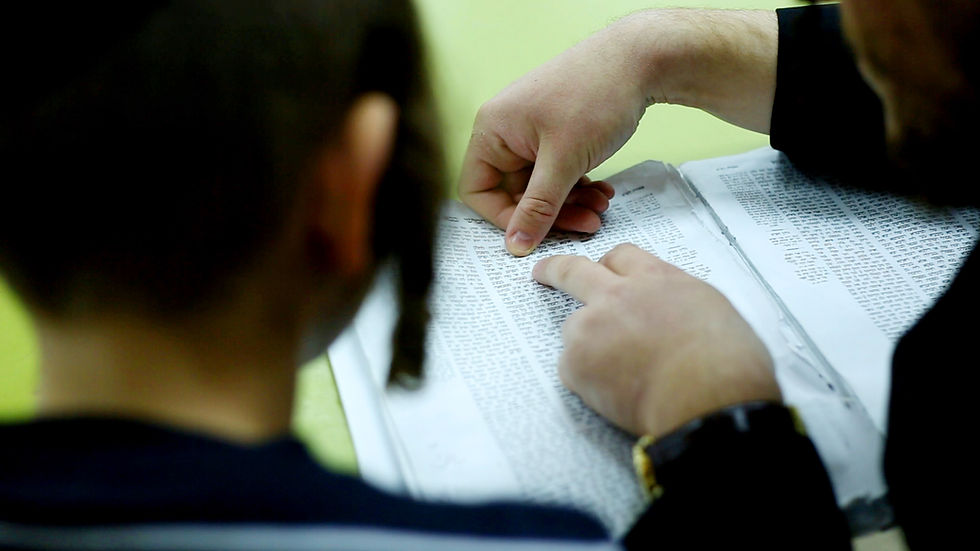A Family Dilemma: Navigating Parental Disagreements
- Pele Yoetz
- May 21, 2025
- 3 min read
Question: I'd like to inquire about a matter that has been troubling me deeply lately. My parents are struggling with one of my brothers, who is OTD. They are very divided in their approaches of how to deal with him, and their disagreements have become very frequent. Needless to say, the situation is very unsettling for the rest of us children—married and unmarried—who want to see our parents united in their approach to our brother and not arguing.
As their married children, can we, and if yes, how can we help to mediate between them and perhaps influence them to come to the best decision? For instance, may we advise them to consult with an experienced mechanech to help them establish a consistent approach? I would assume that my question applies to any number of instances when parents are at odds, and children are forced to witness the distress firsthand. I would greatly appreciate a swift reply.

Hagaon Harav Dovid Levy shlit"a replies: Your question relates to two important aspects: The first is when we are of the opinion that one parent is correct in his/her behavior and approach, how can we guide the other parent toward what we perceive is the proper path? The second is when it's not about who is right, or even if we don't know who is right, but rather the upheaval that the entire family is suffering as a result of a fundamental disagreement between parents.
To answer this question, let’s present the halachah regarding this issue, which is established by the Rambam in Hilchos Mamrim Ch.6:
What constitutes awe of one's father and mother? One does not stand in their place, nor sit in their place, nor contradict their words, nor overrule their words. That is to say, when we are commanded, "A man, his mother and his father, you shall fear," the intention is that it is forbidden for us to interfere in a dispute between our parents, for better or worse! Even if one sees them transgressing a command in the Torah, one should not say, "Father, you have transgressed a Torah command," but rather, "Father, does the Torah not state so and so?” as if asking them, and not as warning them.
Furthermore:
To what extent does [the mitzvah of] honoring one's father and mother [apply]? Even if they take his purse of gold coins and throw it into the sea before him, he should not shame them, nor cause them distress in their presence, nor become angry with them. Rather, he should accept the decree of the Torah and remain silent. And to what extent is fearing them? Even if he was wearing precious garments and sitting at the head before the congregation, and his father and mother came and tore his garments, and struck him on his head, and spat in his face, he should not shame them. Rather, he should remain silent and be in awe and fear of the King of Kings, who commanded him to do this.
The above all indicates that it is strictly forbidden to attempt to guide one's parents in the way we deem correct and true. Moreover, anytime a child faces conflict or friction between two parties, it’s recommended to attempt to influence the person, rather than insisting on absolute truth, because the result of obstinacy is usually just escalated conflict! It’s also likely that parents will be hurt or even deeply insulted by their children’s interference, and that they anyway will not accept their children's opinions.
Is there anything you can do?
It may surprise you to hear, but the answer is not necessarily! It may be advisable to solicit the help of a third party that is able to intervene. Perhaps you can confide in your grandparents (their parents) or close friends of your parents, and find an indirect way to influence them. Unlike you, they are both permitted to advise with your parents, and b’ezras Hashem, they will help them reach a consensus and unified approach. If this isn’t possible or doesn’t work, know that this is one battle that is not yours to fight and it is still not your place to intervene.
May Hashem guide your brother back to the path of Torah and yiras Shamayim, bringing radiance, nachas and simchah to your entire family.




Comments